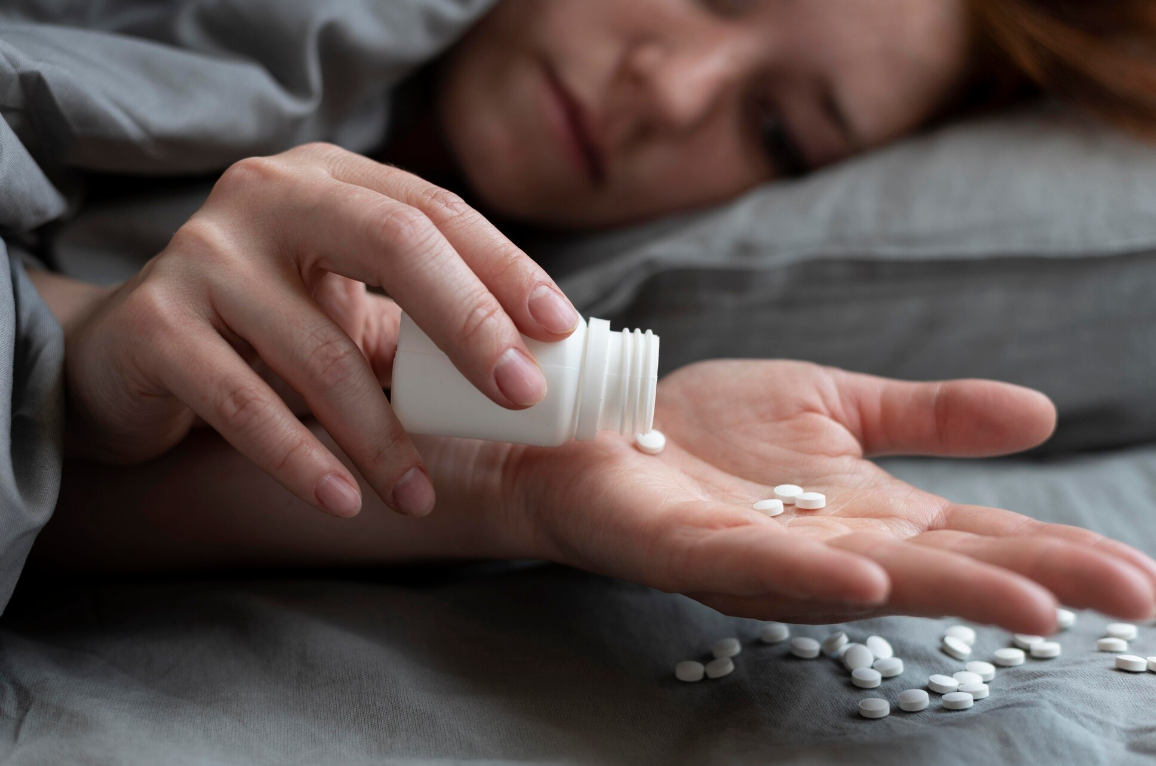.png)
Discover how 30-day programs in South Carolina help individuals overcome prescription addiction. Find structure, support, and hope for lasting recovery.
An estimated 4.8% of Americans, ages 12 and up, engage in prescription drug misuse. This number shows how prescription drug misuse continues to rise across the U.S. — and South Carolina is no exception.
What often starts as legitimate pain management or anxiety relief can gradually turn into dependency, leaving individuals and families searching for a way out. For many, 30-day programs in South Carolina provide that first crucial step toward recovery.
These short-term programs offer a structured and supportive environment designed to help you safely detox, rebuild routines, and learn healthier ways to cope. In this blog, we’ll explore what makes these programs effective and how getting help early can make recovery feel more achievable and sustainable.

You might start taking medication for completely valid reasons like pain relief, anxiety, or focus. But over time, tolerance and dependence can gradually build without you realizing it. That’s where South Carolina addiction treatment programs come in, offering education, medical support, and recovery guidance before things reach a crisis point.
The most commonly misused medications include:
Each type affects your brain in different ways, but all can lead to dependence when misused or taken without medical supervision. No matter the substance, the early signs of misuse tend to look similar.
For instance, you might find yourself running out of medication early, seeing multiple doctors for refills, or feeling anxious when you miss a dose. Over time, you may notice changes in your mood, energy, sleep, or appetite.

Recognizing the said patterns early is key. But it’s just the beginning. The next key step is to get help through a trusted provider.
If you’re ready to take the first step toward recovery, 30-day programs in South Carolina offer a structured, supportive, and time-focused approach to healing. These programs are meant to help you regain stability, build healthy habits, and begin addressing the deeper causes of addiction, all within a safe and encouraging environment.
A key component of these programs is structured detox with medical supervision.
Detoxification can be physically and emotionally challenging, but under the care of trained professionals, you can safely manage withdrawal symptoms and reduce the risk of complications. Medical teams monitor progress closely, ensuring comfort and safety throughout the process.
Beyond detox, you also participate in daily therapy, group counseling, and holistic recovery practices such as mindfulness, nutrition planning, or exercise routines. These elements work together to strengthen both body and mind, helping participants rediscover balance and purpose.
Most importantly, these programs provide you with a focused environment where you can reset physically, mentally, and emotionally. By stepping away from everyday triggers and distractions, you have the opportunity to fully engage in treatment, gain clarity, and lay the foundation for long-term recovery.
Searching for 30 day treatment centers near me can open the door to a focused and effective path toward recovery. Here are its best benefits:
A 30-day program offers concentrated therapy and medical care, helping you address addiction head-on. Each day in a 30-day program is structured with purpose, from detox and counseling to education and coping skills training.
For many, committing to long-term residential care isn’t possible. Thirty-day programs are a practical alternative, offering comprehensive treatment that allows you to step away from your routines temporarily and return to your responsibilities with renewed focus and strength.
Completing a 30-day program is just the beginning. Quality rehab centers ensure you are connected to ongoing therapy, peer support, and community resources that promote continued growth and sobriety long after the initial stay.

Now, how do you choose the right rehab center? Fortunately, 30-day programs in South Carolina are available in many communities, offering both inpatient and outpatient options to match your needs and schedule.
How to search for 30-day treatment centers near you:
When choosing a program, these are the key factors to consider:
Short-term treatment is only your starting point. As stated, it gives you the structure, tools, and confidence to stay grounded once you step back into daily life. In addiction treatment centers in South Carolina, you’ll learn that consistency, community, and continued care are what truly sustain recovery.
During those first few weeks, rehab gives you a routine, accountability, and a safe place to stabilize both physically and emotionally. But long-term sobriety depends on what you do next. And that includes keeping up healthy habits, staying engaged in therapy, and surrounding yourself with people who genuinely support your growth.
That’s where aftercare, alumni support, and relapse prevention programs become especially vital. They help you stay connected, offering check-ins, counseling, and peer support when life feels heavy or uncertain. Instead of facing challenges alone, you’ll have a team and a community behind you.
Most South Carolina addiction treatment programs understand that recovery isn’t one-size-fits-all. You’ll have options for ongoing care — whether that means outpatient therapy, support groups, or a sober living environment — so you can keep building on the foundation you created in treatment.

Recovery from prescription addiction is absolutely possible, especially when you have the right support and structure in place. In particular, 30-day programs in South Carolina can give you the foundation you need to begin rebuilding your life. Through medical care, therapy, and community support, these programs provide the tools to heal physically, mentally, and emotionally.
If you or a loved one is struggling, reach out to one of the trusted addiction treatment centers in South Carolina for guidance and compassionate care. Lotus Recovery offers comprehensive support so you can regain your life with confidence. Get in touch now!

Reviewer
Henna is a content strategist with over 5 years of experience in behavioral health marketing. She specializes in creating informed, compassionate content for addiction treatment centers, using her deep understanding of the industry to educate, engage, and support individuals seeking recovery.